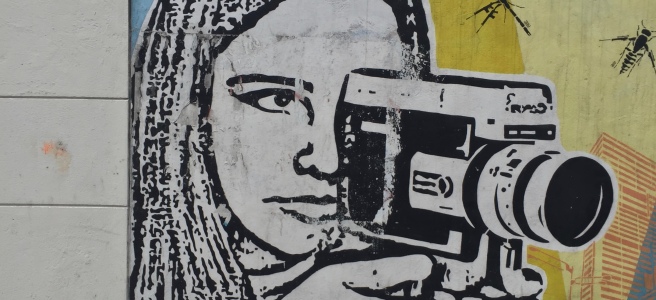The Henry Girls is the name of a band comprised of three talented sisters from the village of Culdaff in County Donegal, one of whom I shared a house with in Belfast in the nineties. Curiously, they are not Henry girls at all, but McLaughlin girls. However, there is such a proliferation of McLaughlin’s in Derry and Donegal that the locals referred to them by the name of their maternal grandfather, and that name stuck; such things happen in Ireland. Their music covers a lot of ground, and does so beautifully: traditional Irish, blues, jazz, country – they sing what they like and I like what they sing. It was through them that I first heard ‘The Farmer’s Song’. It’s by Californian, Tucker Zimmerman, except he calls it ‘A Taoist Tale’, as he was inspired by the Taoist philosophy of welcoming what occurs in life without judgement or label. I’m surmising, but I suppose the Henry Girls thought to change the title for their Irish audience, where there wouldn’t be a huge following of Taosim. Regardless of the name the song is known by, its message is profound: that the difference between what we consider to be ‘good’ and what we consider to be ‘bad’ is much more blurred than our fixed minds allow. Good and bad are labels that we so readily sticker onto every part of our lives, yet, the Taoist teaching reminds us to take a step back and ask ourselves: how do you know?
In ‘The Farmers Song’ some of the good and bad occurrences are played out and we come to understand that all is not as it at first seems. What seems to be calamitous might actually be advantageous, and vice versa. We know that we can’t see around corners, we know we can’t tell the future, yet, in some ways, when we apply these judgements we are making a statement that we do know how its all going to pan out. “That new job will be the making of her.” How do you know? “Dropping out of that course will be the worst decision of your life.” How do you know? “You’d be better buying a house and not throwing your money away on rent.” How do you know? Sometimes we’ll be around to see our judgements of ‘good’ and ‘bad’ turned on their head, sometimes we won’t; either way life will take its course irrespective of what we had to say on the matter.
Wu Wei, in a book interpreting the I Ching wisdom of Taoism, says: “Everything that happens, happens at the only possible time it can happen, and it is always at exactly the right time.” Accepting the good and the bad with equanimity and avoiding the temptation to label what happens is not absolution to give up on doing what is right or to stop pursuing our goals. Instead, it invites us to remain calm and composed, to embrace not knowing and to accept the very strong possibility that whatever is happening might, after all, be for the best.
‘A Taoist Tale’, song by Tucker Zimmerman
‘Once upon a time
a farmer sent his son
with a horse to graze
upon the mountainside
he fell asleep
when he awoke the horse was gone
came back without it
the neighbours said: oh what bad luck
the farmer said: how do you know?
oh how do you know?
on the very next day
the farmer sent his son
back into the mountains
to seek the runaway
he found the horse
and seven other wild ones
he brought them home
the neighbours said: oh what good luck
the farmer said: how do you know?
oh how do you know
on the very next day
the farmer sent his son
to the wild horses
which needed to be tamed
first one he climbed on
it threw him down to the ground
broke his arm
the neighbours said: oh what bad luck
the farmer said: how do you know?
oh how do you know?
on the very next day
a war was declared
and the army men
came thru the countryside
looking for soldiers
but they couldn’t take anyone
with a broken arm
the neighbours said: oh what good luck
the farmer said: how do you know?
oh how do you know?’


Reminds me of the children’s book, “That’s Good, That’s Bad!” — same idea.
And isn’t wu wei great? I read his commentary pretty much every morning. Glad you found him helpful too.
LikeLiked by 1 person